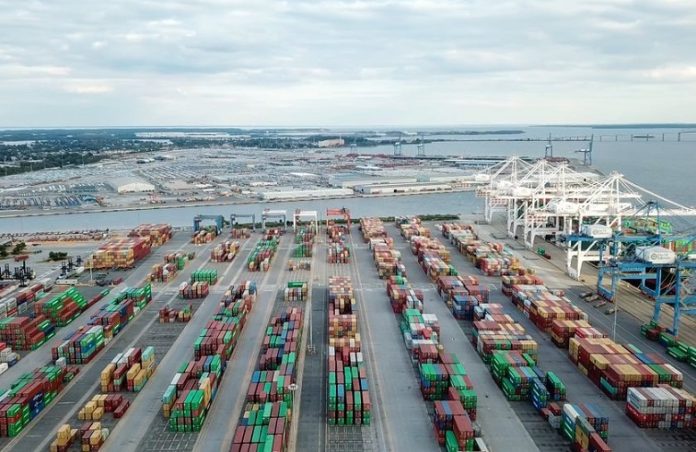The collapse of the Francis Scott Key Bridge in Baltimore on Tuesday, March 26, 2024, is expected to cause significant disruptions to supply chains. The bridge is the outermost bridge in the approach to the Port of Baltimore and the most important terminals, including Seagirt Container Terminal, Dundalk Terminal and the ro-ro/car terminal are upstream of it.
The containership Dali, which struck the bridge, was en route from Baltimore to Colombo, Sri Lanka.
The bridge has been closed at both ends and traffic detoured. Vessel traffic into and out of the Port of Baltimore is suspended until further notice. The port authority said that the port is still processing trucks inside of its terminals, but the collapse of the bridge is expected to have a significant impact on the movement of goods in and out of the port.
The impact on supply chains is still being assessed, but it is likely to be significant. The Port of Baltimore is the 14th busiest port in the United States and handles more than one million containers each year. The collapse of the bridge is likely to divert cargo to other ports, which could lead to delays and increased costs for shippers.
The collapse of the bridge is also a reminder of the vulnerability of supply chains to disruptions. The COVID-19 pandemic, the war in Ukraine, and other events have all caused disruptions to supply chains in recent years. The collapse of the Francis Scott Key Bridge is another reminder that businesses need to be prepared for disruptions and have contingency plans in place.





































